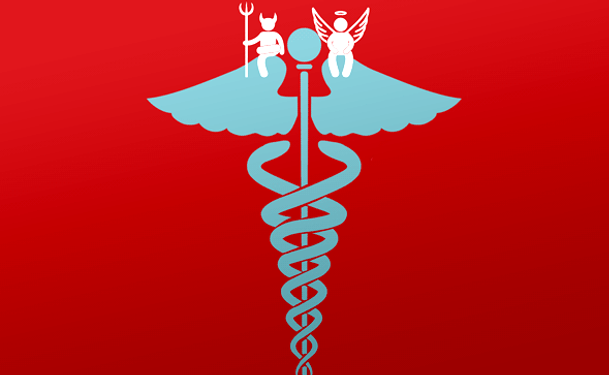In a candid round table discussion, doctors express concern over public safety and the ethics of treating venous patients
Doctors, it turns out, are just like us. As professionals, they strive to learn to be better business people and leaders – it doesn’t always come naturally. In a round table discussion hosted by VEIN Magazine—our industry leading publication geared toward physicians specializing in venous disease—internationally recognized specialists discuss the dynamics going on behind the scenes in an exploding field of medicine. Here are some of the chief takeaways.
Ethics in Health Care: A Hot Topic
Small but growing group of doctors behaving unethically. "There are patients who have been treated, or how do I say, mistreated or inappropriately treated for some type of ‘venous problem’ that may be a venous problem or may not be a venous problem,” according to Dr. Steve Elias, director of Englewood Hospital’s Center for Vein Disease in New Jersey. “We are seeing more and more of this as the specialty of treating veins has exploded into other areas of sub-specialties,” he continues.
Exaggerating findings. These doctors “exaggerate the clinical severity of their disease and then the patients, interestingly enough, sense something and then they seek a second opinion,” according to Dr. Jennifer Heller of John Hopkins Vein Center in Baltimore, Maryland.
More than in the past. “About 10 years ago, one misdiagnosed patient would trickle in every now and then and now I probably see two or three a week. It’s the same 10 or 15 clinics out there or docs who overreach on leg pains,” according to Dr. Jose Almeida of Miami Vein Center in Miami, Florida.
What's a doctor to do? “I don’t know how many two millimeter competent great saphenous veins are being closed these days...it’s a very serious ethical problem and I think that as Dr. Almeida was saying, to go to the medical society on this can get you in trouble as well” adds Dr. Mitchel Goldman of Cosmetic Laser Dermatology in San Diego.
The Role of Insurance: Misplaced Incentives
Certainly in the case of unethical, or borderline ethical care, misplaced incentives are at play.
“You’ve got a vein center, you’ve got a fixed expense that you need to meet. Then these medical device companies will come to you and say ‘I’ll put a box in your office, but you’ve got to do 20 cases a month, at least 20 catheters a month and we won’t charge you for the box, but you’ve got to use the catheters.’ Already you’re getting locked in to a volume that you need to meet to keep your generator,” says Dr. Almeida.
A Lack of Training
Money isn’t the only motivator behind poor care. There is after all a difference between an unethical doctor and just a lousy doctor or even just a human doctor—meaning one who makes mistakes.
Veins: Not a specialty taught in medical school. It may surprise consumers to know that venous disease treatment is not a specialty taught in medical school. In the mid-1990s vein specialists taught themselves and taught each other. Today’s leaders in vein care ask themselves how will the next crop of physicians get the best training?
New devices coming to market. While new devices and technology result in better patient outcomes, and therefore an overall trend toward growth in the field, many physicians find themselves needing to learn new technology rapidly.
“Clearly, I think there has been a disservice to patients in public safety by putting these [new devices] in the hands of just anyone. When the podiatry community started doing this in Florida that was just icing on the cake. We’re just waiting for the psychiatrist and veterinarian to get into it now,” Dr. Almeida states.
While there are no clear answers, leaders in the field are working on a number of solutions that are discussed in this issue of VEIN:
- Establishing comprehensive training in venous and lymphatic medicine
- Merging the medical societies that deal with veins to form one “super society”
- Ways of reaching out to colleagues who have gone astray
- Working with industry to make sure physicians are properly trained on new devices
Public Awareness is Key
As for consumers, awareness is the key. While we don’t recommend becoming paranoid, we do recommend being an active and informed participant in your own healthcare.
Many consumers aren’t even aware that varicose veins may or may not be a sign of a larger problem. Venous disease is progressive, so what may start out as a varicose vein in your 40s or 50s may turn into a more debilitating problem in later decades.
As life expectancy continues to increase, public awareness of vein health throughout the lifetime increases in importance. Always have your varicose or spider veins checked by a doctor.


